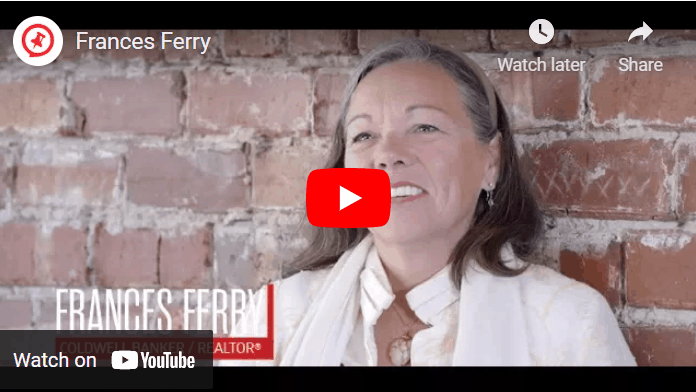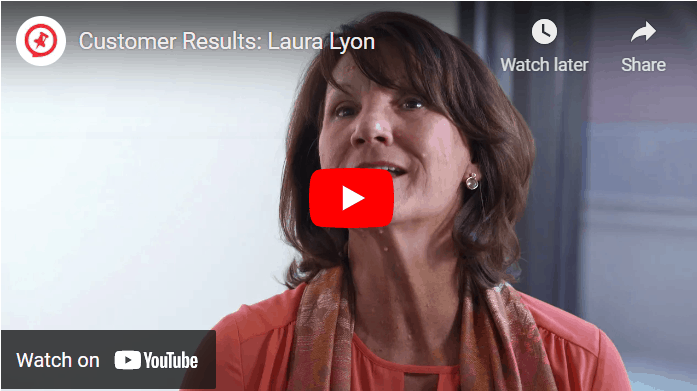Updated October 2021
If you haven’t asked, then you’ve got your head in the sand.
Contrary to what industry news and conference keynotes might lead you to believe, not every agent hates Zillow. Granted, I had little success when searching for any positive agent reviews of the behemoth. Even so, I have to assume that someone out there is doing really well working with this platform, and I’m simply not using the right keywords.
Even so, I can’t deny that a significant number of agents have held a long-simmering resentment toward Zillow. And their bitterness isn’t because everyone loves to hate a winner.
Whether you agree with the legitimacy of these agents’ bitterness or you’ve found a way to live in peace and harmony with the leading real estate and rental website in the United States, you’ve got to respect at least some of the concerns.
Zillow’s business practices
David Bolton of Today I’m Home, says agents have some very good reasons for hating Zillow:
“Inaccurate information”
Zillow does not update or remove sold properties. They engage in “false advertising,” listing homes for sales as foreclosures. Their Zestimates are inaccurate by as much as $14,000 but are often used by consumers as legitimate sale prices.
“Greed”
For Zillow to direct leads to property agents, agents need to pay a fee for what they say is information they already own. However, in addition to promoting the property agent, Zillow also promotes other agents alongside those who have already paid.
Additionally, one listing will appear to be represented by several agents. The result is two-fold: confused buyers and competition with agents who may not be registered to use the Zillow platform.
“Theft of intellectual property”
Agents often spend thousands of dollars on marketing that you would obviously think belongs to them because they’ve paid for it. Alas, Zillow routinely seizes this content from various platforms and uses it themselves.
And because they don’t defend these materials and the details within from theft and duplication, the information can end up anywhere—including places rife with scams for which the agent will be held responsible and suffer from the subsequent bad reviews.
The potential for “scams”
Speaking of scams, Zillow takes no action to confirm whether the person who has posted a house for sale on their platform is actually the owner of the house.
They also don’t verify whether the information provided about the home is accurate, including whether the house actually exists at the given address.
Consequently, anyone who gets their jollies from swindling people can pose as a representative of a known agency and make it exceptionally easy for someone to become a victim.
Bolton offers more reasons, but you get the idea . . . he’s not a fan.
And he’s not alone.
Remember when Zillow said it was a media company and was not interested in selling houses, and then it started selling houses? I don’t know anyone who didn’t cry foul when that happened.
More recently, Facebook blew up after news broke about Zillow’s plan to acquire ShowingTime (a relatively innocuous move I discuss below). Most comments vilified Zillow and illustrated the growing frustration and fear over privacy and the access, ownership, and control of data.
Bigger targets are easier to hit.
Are agents’ suspicions misplaced?
Now, I cannot say for sure that the accusations levied against Zillow by its detractors are 100% accurate.
First, since I began writing this blog and while I have diligently done my research, there’s been a series of recent, rapid, and ongoing changes at Zillow and several similar, competing companies that may have changed how things operate.
Second, I’m not a real estate agent. I have no direct working relationship with Zillow, so I have no firsthand experience on which to form a personal opinion.
Third, I’m also not a lawyer. While some of Zillow’s practices may appear unfair, that doesn’t mean what they are doing is illegal. Capitalism is a double-edged sword, and there will always be those who are ticked off because they didn’t think of a profitable idea or improved process first.
Does all of this mean agents shouldn’t be concerned about Zillow? Not at all . . . but maybe not for the reasons described above.
Zillow’s tremendous growth
If I were an agent, I’d be worried less about subjective opinions about fairness and legal judgments about which I have no expertise and more about how objectively big and powerful Zillow has become.
Despite its beginnings and broken assurances (believing they were promises is simply naive), Zillow is on the fast track to becoming a one-stop-shop for the entire home buying experience—from pre-sale to closing.
Take a look at their history and tell me I’m wrong:
- August 2015: Zillow buys DotLoop, a company that simplifies real estate transactions by giving brokerages, real estate agents, and their clients a way to digitally share, edit, sign, and store documents.
- May 2017: Zillow begins testing Instant Offers in Las Vegas and Orlando, allowing home sellers to get cash offers from selected investors interested in buying their houses, all within Zillow’s platform.
- April 2018: Zillow enters the ibuyer market in Las Vegas and Phoenix with Zillow Offers, and begins buying and selling homes directly to and from homeowners (despite “promises” it was not interested in entering the broker space).
- April 2019: Zillow Home Loans, a mortgage lending operation, goes live six months after Zillow purchased Mortgage Lenders of America in November 2018.
- November 2019: Zillow Closing Services begins testing as a mortgage, title, and escrow service to further enhance the ease and appeal of Zillow Offers.
- January 2021: Zillow Homes begins operation as a licensed brokerage in Phoenix, Tucson, and Atlanta, with plans to expand quickly. Zillow Homes is “the brokerage of record for Zillow Offers transactions.” Customers work with, and homes are listed by, licensed Zillow employees since “Zillow Homes will not be recruiting agents from other companies” (wink, wink, fingers crossed). Zillow Homes will get its data from MLS IDX (although not without first experiencing an embarrassing glitch).
- February 2021: Zillow announces an agreement to purchase ShowingTime, an open house scheduler used extensively by agents. Zillow reports it “will continue to operate ShowingTime as an open platform for the entire real estate industry.” (I guess we’ll have to wait and see.)
As I suggested above, this last growth spurt was met with what some might consider an overblown reaction. As one observer commented, “. . . a big tech company buying a small tech company isn’t exactly news. Or exciting. Or even interesting.” Nonetheless, agents were . . . how do I say this . . . beside themselves.
Personally, I think the uproar is easily explained.
Many agents are freaking out because they see the writing on the wall. To these agents, every move Zillow makes is just one more line moving the story ever closer to an inevitable conclusion—their jobs are going to become obsolete.
But here’s the thing—this apocalyptic future is not inevitable.
But then again, to stop it from happening, you may have to start doing things differently.
It’s time to get real
We can see where Zillow is going, and short of any legal action that sticks, there’s nothing to stop them.
Agents who are calling upon their brothers and sisters not to send Zillow their leads don’t have a firm grasp on reality.
And there might have been a time when NAR and MLSs could have done something, but that ship sailed a long time ago.
We sometimes forget that we can’t control what others will do, but only how we’ll react. To date, I haven’t encountered any collective action worth mentioning, which means it’s up to individual agents to set the course and save their own butts.
So, what can you do to protect yourself from becoming superseded by an algorithm?
Maybe you should start with an honest assessment of the value you are bringing to the table—and what more you could be doing.
Do you know how you’re spending your time? I mean, really know.
If for no other reason than you may not always be available or you’re the only one in the office who knows x, consider tracking every 30 minutes of your time for a week. Write down everything you do each half-hour, and then analyze your activity and start to eliminate, automate, and delegate.
It’s what Stay Paid guest Patricia Kiteke did.
Before starting her own team, Patricia did $40M in sales volume by herself. To prepare for the transition, she tracked her activities. Then she took a hard look:
- She removed everything that could be automated from her day.
- She eliminated anything an administrative assistant could do.
- She filled the empty slots in her calendar with income-producing activities.
It doesn’t have to be expensive, and the money you’ll save by devoting your time to higher leverage activities will produce the ROI.
You can automate your marketing to reduce the burden of posting to social media, sending postcards, and mailing newsletters. You could hire a temp or college student to handle non-specialized tasks. Consider a virtual inside sales agent to qualify leads and book appointments.
The point is to be conscious of how you are spending your day and the activities that are shrinking your productivity so you can adjust. For example, are you attending inspections you don’t need to be going to?
Plan the work. Then work the plan.
It’s human nature to avoid what we don’t like. For many agents that means avoiding cold calling because they don’t like the rejection.
But let’s be real . . . what’s the worst that can happen? If someone says no, you’re no worse off than you were before you made the call.
Make the calls
The key to cold calling is confidence, and it doesn’t hurt to know a few tips. Cody Askins’ cold calling techniques helped to make him the #1 insurance sales trainer in the world. You can find three of his no-fail cold calling hacks here.
Tips are fine, but if you don’t know what to say, when to say it, and how to say it, you won’t succeed. This is why you need a script.
Just ask Andrea Blum.
Andrea is among the top 1% of agents in Toronto with $20M in sales and is in the top 5% in all of Canada with $200M in sales volume. She has a thing or two to say about scripts (and the people who don’t think they need them!). You can listen to an amazing interview with Andrea and read the informative accompanying blog here.
You can also download and use a ton of free scripts, compliments of ReminderMedia.
Do the follow-up
You’ve heard it before. For years, research has shown that, as far as follow-up goes, salespeople don’t do it as much as they should if their intent is to actually make a sale. Here we are in 2021, and the story is the same:
| Percent of sales made per contact | |
| 1st contact | 2% |
| 2nd contact | 3% |
| 3rd contact | 5% |
| 4th contact | 10% |
| 5th to 12th contact | 80% |
What does your follow-up look like?
Relationships are the only leads you truly own
How many people do you know who are willing to sink $300,000 or more into the single biggest purchase of their lives without seeking some degree of help or advice?
That’s what I thought.
In November 2020, NAR reported that 88% of home buyers worked with a real estate agent or broker.
But get this … 73% of buyers interviewed only one agent during their home search, This means just under three-quarters of homebuyers who worked with an agent hired the first agent who got an appointment or, more likely, whose name they received as a referral.
In the same report, NAR stated that 89% of home sellers worked with a real estate agent or broker. Similarly, 77% of recent sellers contacted only one agent before finding the right agent.
Here are a few more numbers that should make an impression:
- 40% of buyers found their agents through a referral by friends or family.
- 13% of buyers used the agent they previously worked with to buy or sell a home.
- 91% of buyers would use their agent again or recommend their agent to others.
- 41% of sellers found their agents through a referral by friends or family.
- 26% of sellers used the agent they previously worked with to buy or sell a home.
- 74% of sellers would use their agent again or recommend their agent to others.
Consumers understand the value of an agent’s expertise. Consumers rely on an agent’s advice, their skills, their knowledge and know-how, their caring concern, and their counseling.
So why is it that so many would recommend their agent, but so few actually do?
It’s because the agents didn’t nurture the relationships they had with their clients—they didn’t stay in touch. Consequently, they weren’t top of mind and, most likely, were forgotten.
How sick is that feeling in your stomach when you see another agent’s sign on a house you bought or sold?
Do a good job and create a positive client experience, and the value you bring to the transaction is absolutely worth every penny of your commission. But it’s the value you continue to offer after the sale or purchase that will be rewarded with referrals and that will always distinguish the local real estate agent from big box players.
What is value?
Value is anything that is useful to your clients. It can be educational, entertaining, or endearing.
Educational may be a blog, lead magnet, or webinar that gives clients the skinny on home inspections.
Entertaining could be a fun Instagram post, a recipe, engaging article, or notice of a local event.
Endearing is anything that connects you to the community and engenders goodwill, like inviting neighbors to donate to a food drive you’re sponsoring.
The key, however, is to make sure the value you deliver is F.I.T.—frequent, makes an impact, and builds trust. That means you need to be consistent in your touchpoints, offer information that is relevant, and make a high-quality, professional impression.
Rage against the machine if you must, but you have it within you to forge your own path. Do what you do best, and repeat business and referrals will be yours for the taking as long as you continue to nurture and strengthen the relationships you have with your clients after the transaction.
ReminderMedia can help you deliver value to your clients with automated solutions that allow you to focus on your business. Check us out and request a FREE PDF of our flagship product HERE.
You can also listen to what some of our clients have to say:































